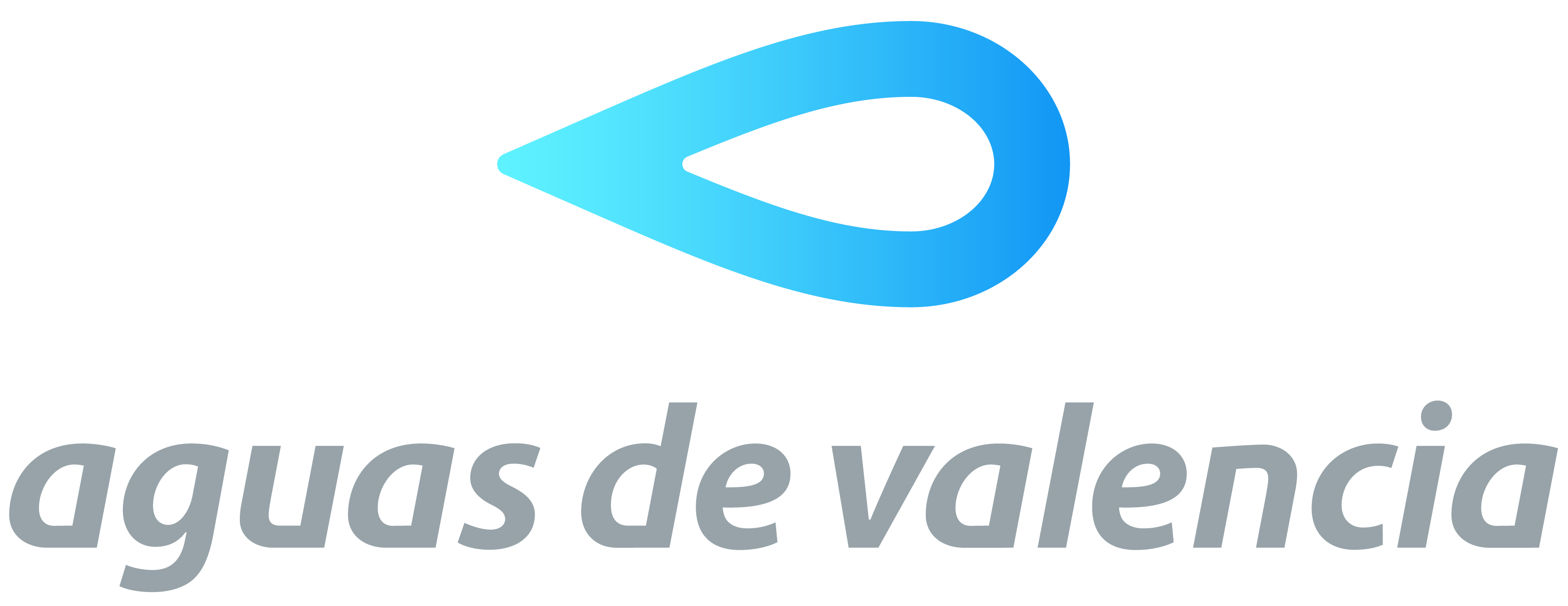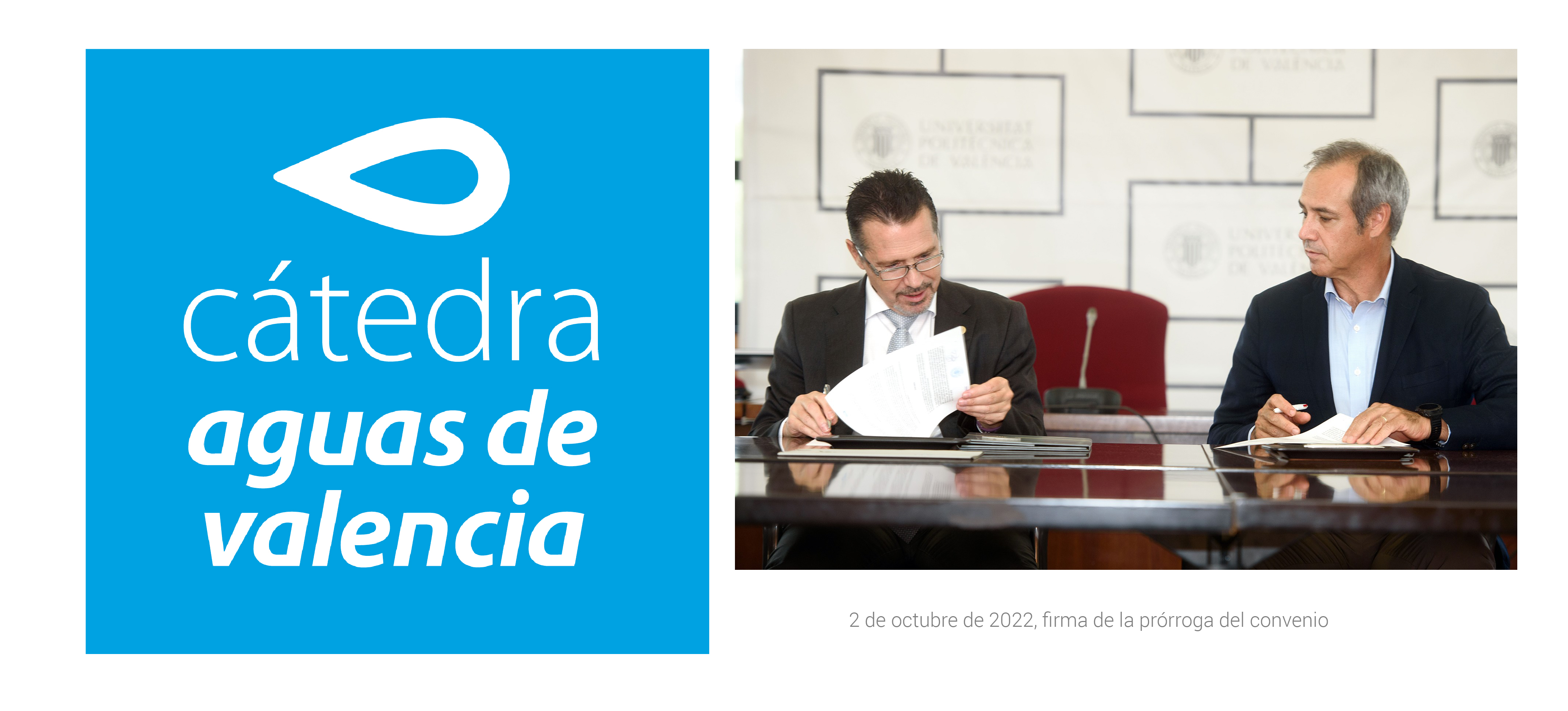
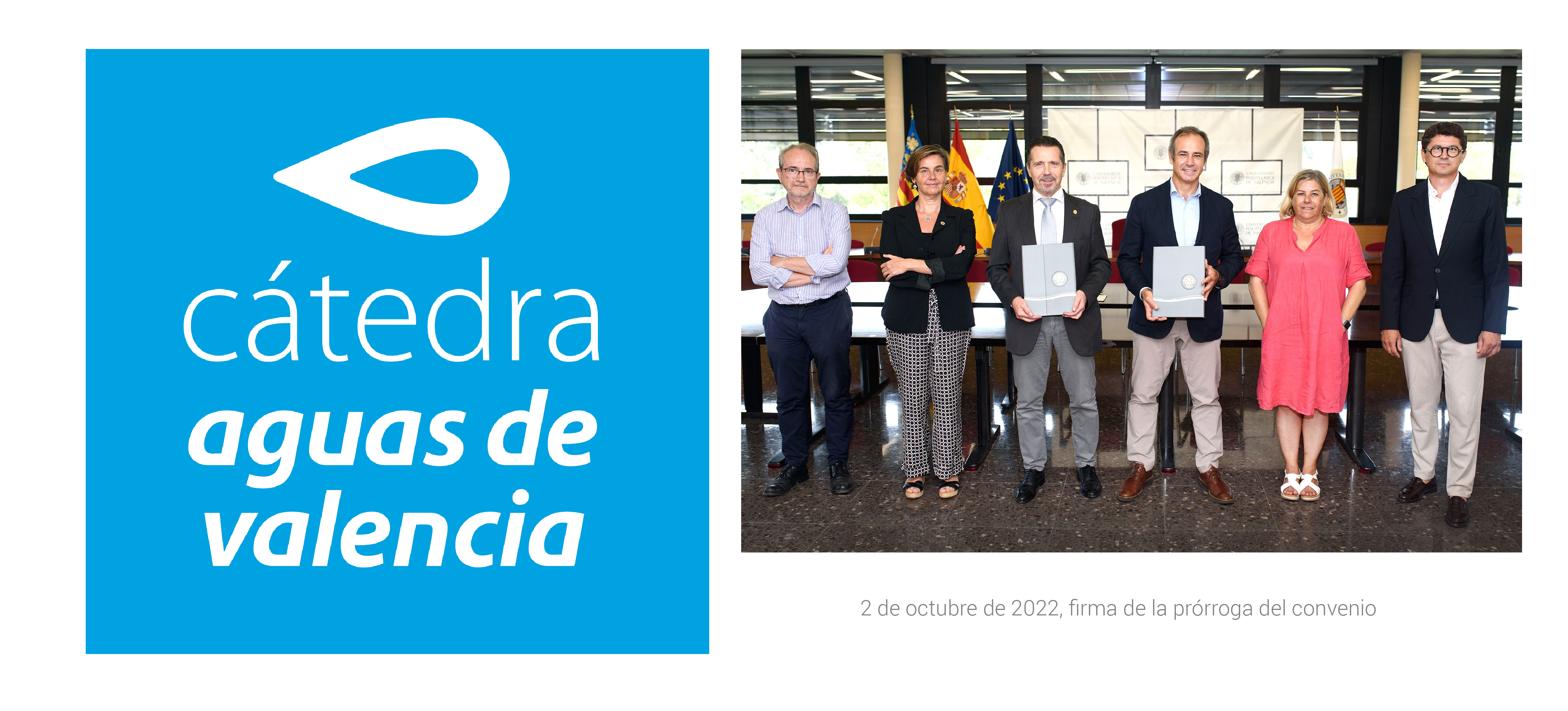
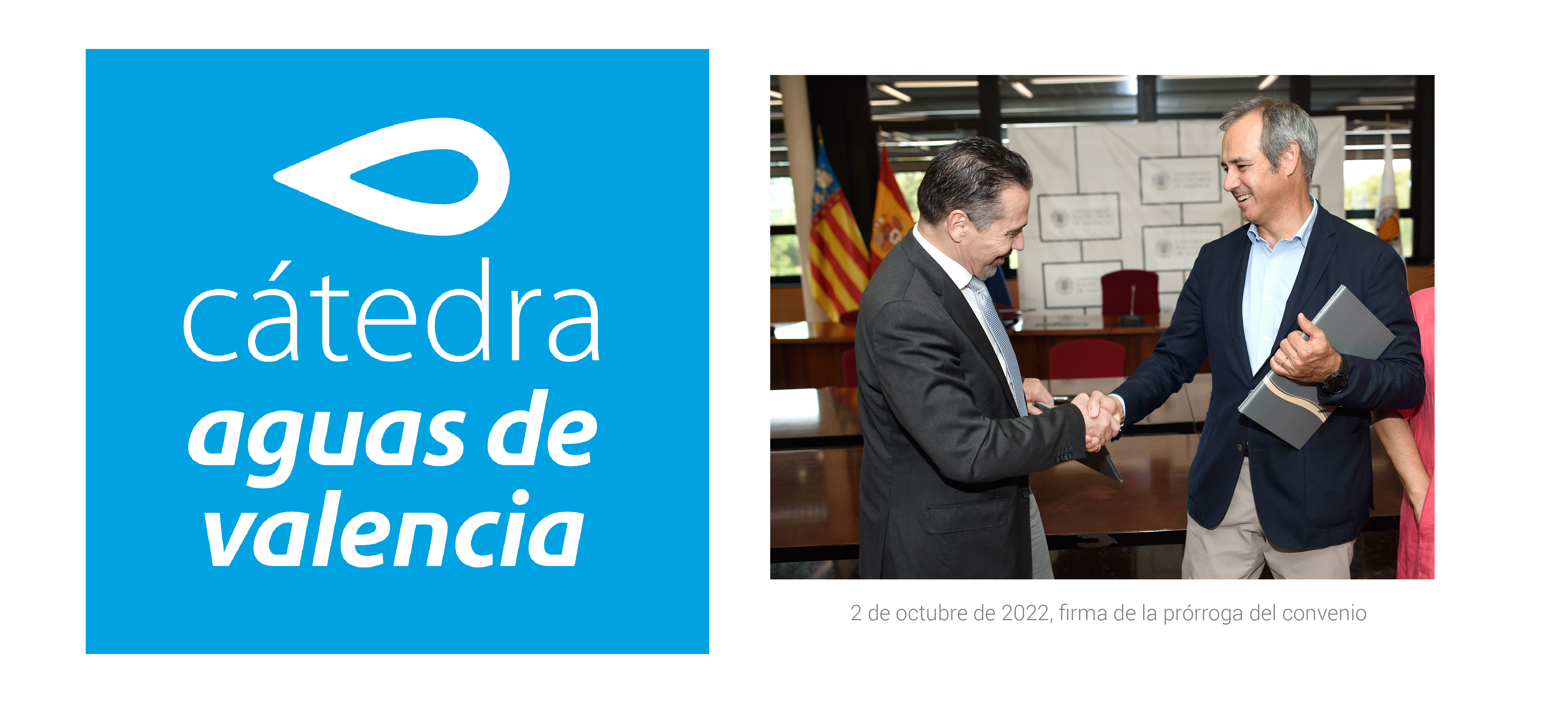
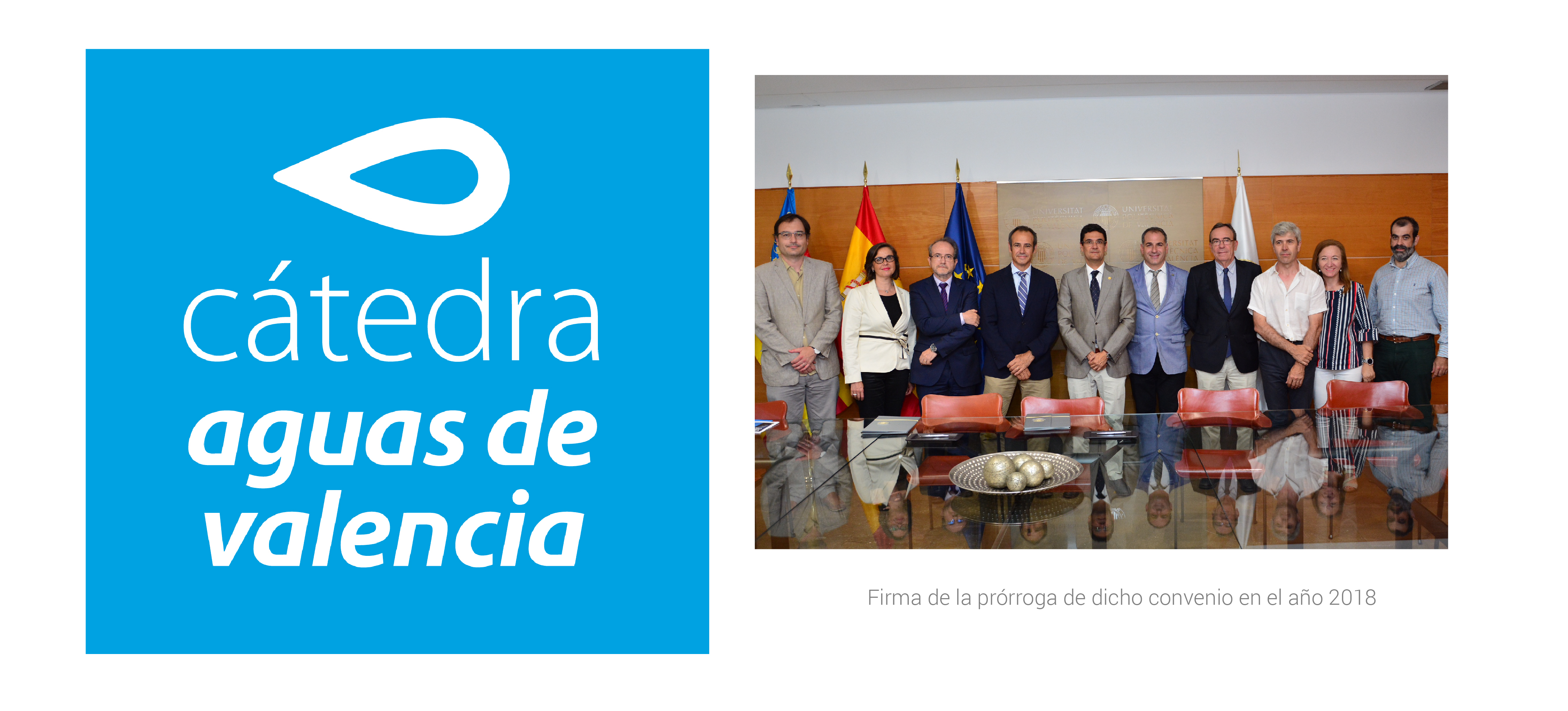
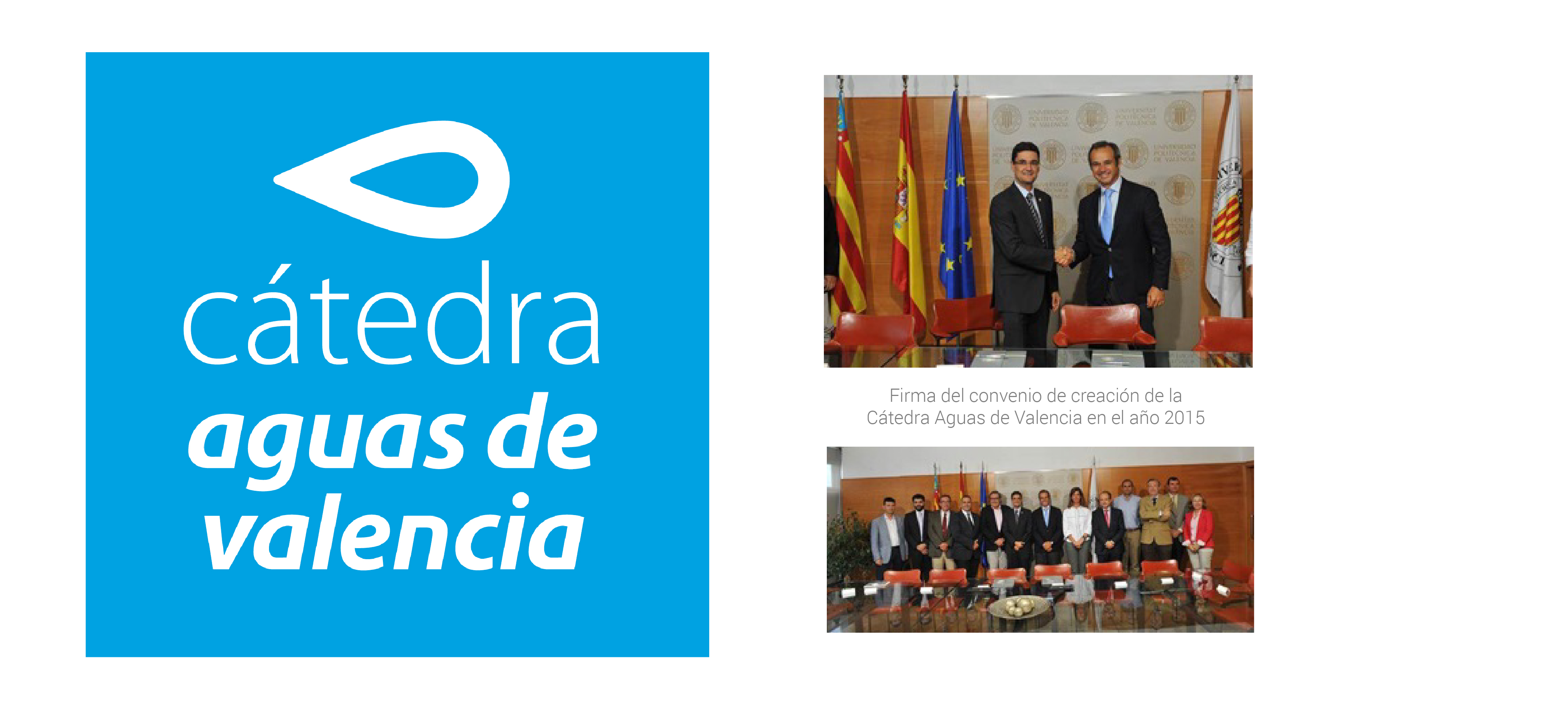
Agreements, Directors, and Activities of the Catedra Aguas de Valencia
On September 28, 2015, the agreement establishing the Aguas de Valencia Chair between the Universitat Politècnica de València and the Fundación de la Comunidad Valenciana Aguas de Valencia was signed. The University was represented by its Rector, Mr. Francisco José Mora Mas, and the Foundation by Mr. Dionisio García Comín in his capacity as attorney-in-fact. The agreement was set for a duration of three years, and it was decided that activities would be carried out through the Department of Hydraulic and Environmental Engineering.
On June 19, 2018, a new agreement was signed to renew the Aguas de Valencia Chair, but this time it was signed directly by Aguas de Valencia, rather than the Foundation, with the aim of making the Chair's operations more agile. The new agreement was set for four years, and the signatories were the same as those of the original agreement.
Effective October 2, 2022, an extension of the previous agreement was signed between Rector Mr. José Esteban Capilla Romá and Aguas de Valencia's CEO, Mr. Dionisio García Comín. The extension was agreed for an additional four years.
DIRECTORS:
- Ignacio Andrés Doménech: From September 2015 to 2017
- Abel Solera Solera: From 2017 to January 2021
- Alberto García Prats: From January 27, 2021, until the end of April 2023
- Javier Paredes Arquiola: Since May 2023
DIHMA DIRECTORS:
Purpose and Activities
The purpose of the Aguas de Valencia Chair is to promote and develop the Valencian Community through innovation and the advancement of technologies related to the management of the Integrated Water Cycle, as well as complementary research work, all within the framework of the University's mission and specific objectives.
To fulfill this objective, the Chair carries out, among others, the following activities:
a) General interest activities regulated by Law 49/2002
- Collaboration in master's programs and other teaching activities.
- Collaboration in the design and delivery of lifelong learning programs.
- Pre-doctoral and post-doctoral scholarships.
- Awards for final degree projects, papers, and idea contests.
- Lectures, seminars, and workshops.
- Promotion of internships within the company, where the company is the UPV.
- Company visits.
- Organization of technical, technological, and artistic dissemination events.
- Publications on topics of interest related to the Chair and its Classroom.
- Promotion at scientific, technical, and artistic events.
- Organization of exhibitions and promotion of cultural activities.
- Dissemination of the Chair’s and Classroom’s activities.
- Promotion of national and international expert meetings in the Chair’s area of interest.
- Studies on environmental and sustainability topics relevant to the Chair.
b) On-demand training activities, regulated by the Organic Law of Universities, initiated by Aguas de Valencia and following the signing of the relevant agreement.
c) Contract research activities, regulated by the Organic Law of Universities, initiated by Aguas de Valencia and following the signing of the relevant agreement.
Historical Background
In June 2014, R&D&I heads from several major urban water service operators, members of the Spanish Association for Water Supply and Sanitation (AEAS), met in Madrid with a select group of university professors and researchers to discuss how to strengthen relations between operators and research centers and universities.
After a full day of sometimes heated discussions, we concluded that for such collaboration between an operator and a university or research center to be fruitful, three conditions must be met:
- Both parties must recognize that they have their own goals and focus their collaboration on the objectives they share.
- Both parties must understand and respect each other’s limitations, which stem from their respective natures. For example, a university cannot forgo knowledge generation through research or knowledge transfer through education. On the other hand, while a company may tolerate small short-term losses, it will not accept large short-term or prolonged minor losses.
- Due to their differing natures, each party may have different behaviors and paces, and neither can demand the other to change those ways.
Based on these principles, the Catedra Aguas de Valencia was created at the Universitat Politècnica de València.
